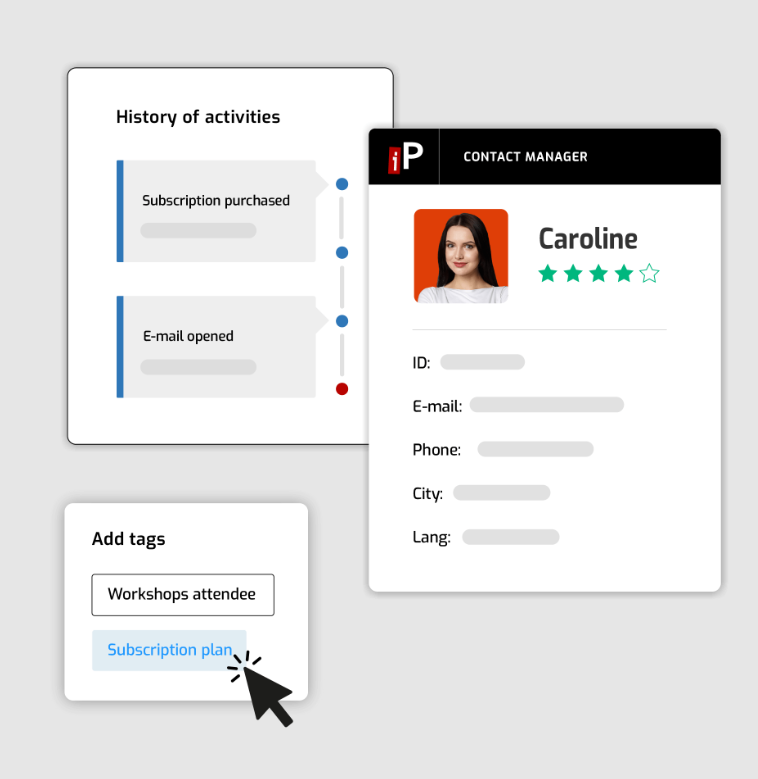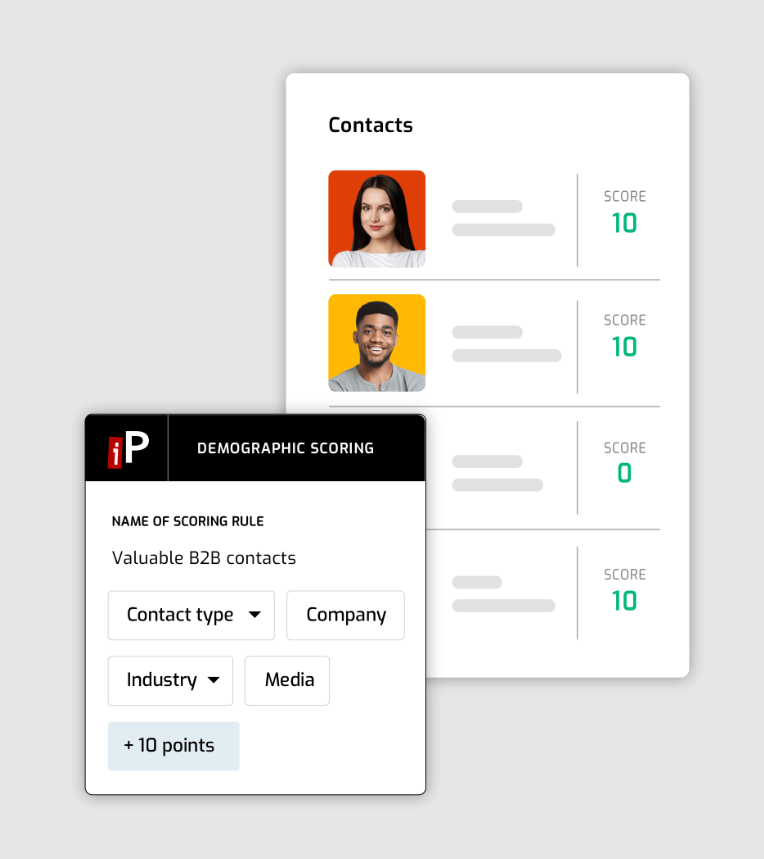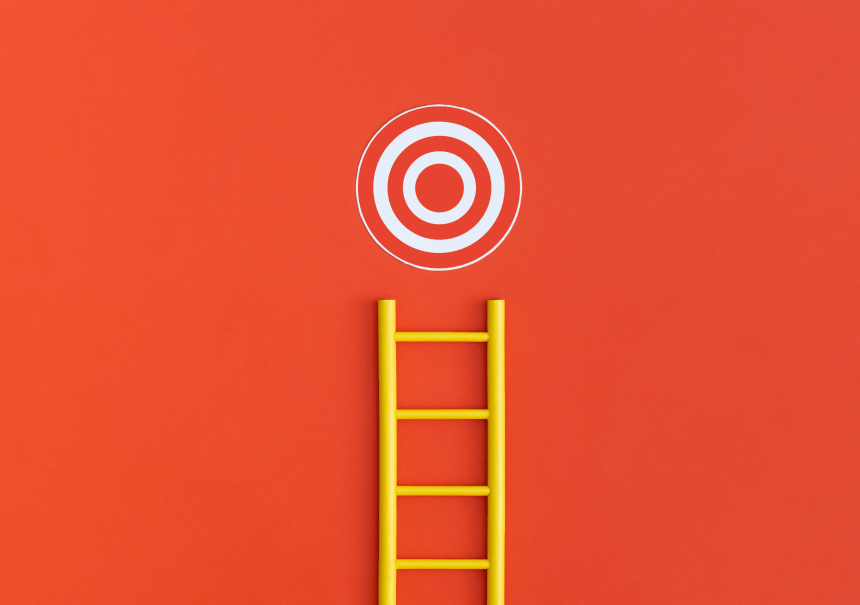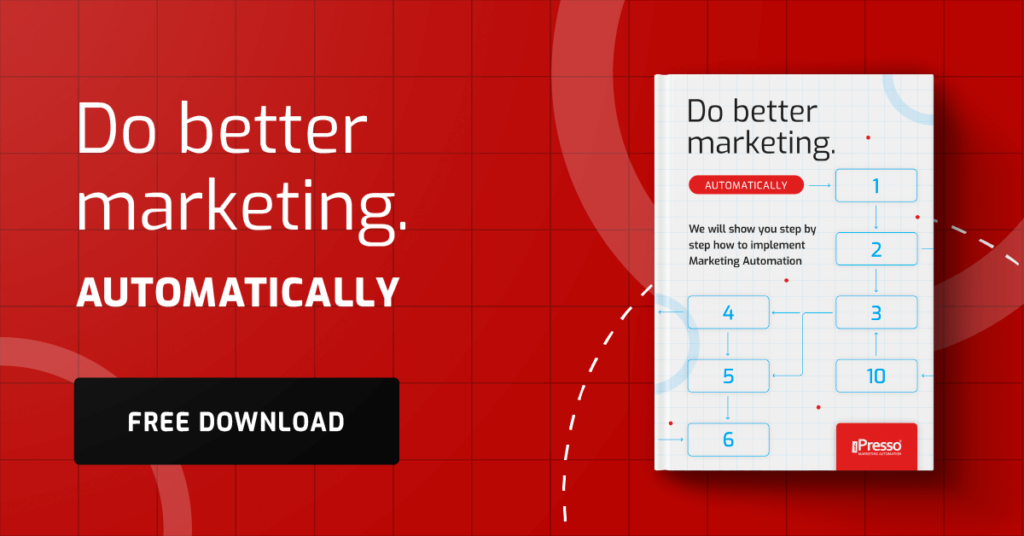Automate lead scoring and generation

Lead generation is probably the most important area of any business. With no new leads coming to your company, your growth will be limited if not impossible. In the ideal scenario, you should have a constant stream of new leads/bookings coming to your business through your website or other marketing channels. And then, lead scoring is the feature that allows you to focus on the most promising leads. Both those areas can be automated with our marketing automation platform. Let’s see how.
A lot of the features in our platform are designed to help you gain more leads. Email marketing, push notifications, web forms, text messages – these are the tools that are primarily used for sales-related purposes. And they are all available on our platform. How can you use them to automate lead generation?
How does lead generation work?
Put briefly, lead generation refers to everything that comprises attracting new leads to your business. This process typically follows the structure of a sales funnel, which consists of different stages designed to move leads (prospective clients) from initial awareness to becoming paying customers. Here’s how such a funnel looks:
At the top of the funnel (the so-called TOFU stage), businesses focus on generating awareness through marketing efforts such as content marketing, social media, and paid ads. That’s how you get leads to see your business and enter the funnel. As potential customers engage with your materials, they are nurtured through further stages of the funnel (MOFU and BOFU), often through email marketing, personalized offers, or even direct outreach.
As leads move down the sales funnel, they become qualified, and the next stage, known as lead scoring, can begin. We’ll discuss this part in a moment. If you’d like to read more about how to automate lead generation in different channels, read the linked article on our website.
How can lead generation be automated?
You can automate lead generation primarily by automating different aspects and elements of your sales strategy, especially when it comes to repetitive tasks such as responding to contact forms or answering frequently asked questions. However, marketing automation platforms do more than that; they also analyze each lead and record all the important details so that you can keep all prospects in one well-organized space where you have easy access to all the information when you need it.
Marketing automation platforms can also detect specific users’ behavior and use this knowledge to implement customer segmentation and personalized communication, thus making your work even easier. iPresso comes with a CRM feature that enables you to store all the data in one place and attach specific attributes to your prospects. This way, you can quickly assess what a given person was interested in and what their questions were.
As you automate different communication channels, new leads can come into your business almost on auto-pilot. Of course, other elements, such as the marketing budget, the right targeting, and a proper marketing strategy in general, still matter, but marketing automation streamlines the process and makes your work faster and more effective. Plus, with all the leads in one place, you limit the risk of losing some leads in the process.
What is lead scoring?
When leads go through the sales funnel, lead scoring also takes place. In short, lead scoring is all about ranking leads based on their probability of converting into/becoming paying customers. With a lead scoring feature in place, your team can focus on the most prospective leads, which, of course, increases the chances of closing the deal.
Lead scoring algorithms take several elements into account, including demographic (e.g., location) and behavioral (e.g., website interactions) ones. With iPresso, you can also implement your own scoring rules and attribute scoring globally, e.g. for each opening of any email, but also assign points on a completely different scale in a given customer journey scenario.
How can lead scoring be automated?
The shortest answer is with iPresso. Our algorithms automatically assign scores to all the leads based on predefined criteria that we mentioned above. So, for example, a lead can be scored depending on how often they interact with the website or with the emails, what assets they download, whether they schedule a free consultation or a demo, etc.
The more activity on the lead’s side, the higher score will be assigned to such a lead, thus giving your sales team an indication that this is the person to focus on in the first place because there is a higher probability that they will become a customer in a short timeframe.
Of course, this doesn’t mean that other leads should be neglected, but not every lead is equally warm. Some leads may not be ready to buy for many weeks to come; focusing on the right now would be highly ineffective. And that’s what lead scoring is for, so you don’t have to assess that every single time manually.
Wrapping up
Marketing automation helps you make the most of your lead generation strategy. While it cannot bring any leads to your business on its own, it can help you streamline the process and save a lot of time. If you already have a lead generation strategy in place, you will see a huge improvement in its efficiency with the use of marketing automation.
If you’d like to know more, you have two options. You can either reach out to our team with any questions you may have or start a free 30-day trial, and just jump right into marketing lead generation (100% for free, no credit card needed).





